Blog Posts Tagged Physics of Sports
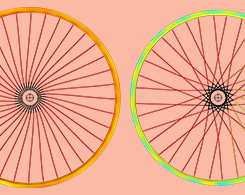
Why Do Road and Mountain Bikes Have Different Spoke Patterns?
Why do some bicycle rims come with warnings? Why do some bicyclists prefer rim brakes? To find answers, we model the forces in a bicycle rim for different brake types and spoke lacing patterns.
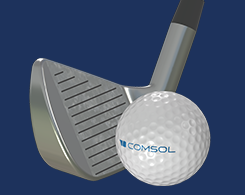
Why Do Golf Balls Have Dimples?
Why do golf balls have dimples? Can I model a golf ball with COMSOL Multiphysics? Can I use simulation to optimize my shot and make a par? Find answers to these questions and more…
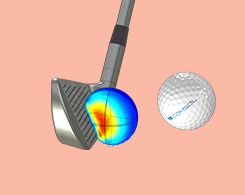
Fore! Analyzing the Performance of a Golf Ball with Simulation
Did you know that golf balls were originally made out of wood? We discuss the evolution of the golf ball and how simulation can be used to analyze modern golf ball designs.
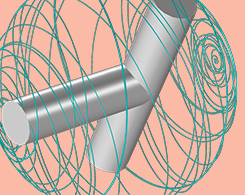
Why Do Tennis Rackets Tumble? The Dzhanibekov Effect Explained…
If you toss a cellphone, tennis racket, wingnut, cereal box, or any object with 3 axes of rotation in the air, it will demonstrate this interesting and unusual effect…
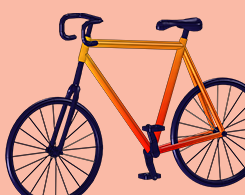
How Do Bicycle Pedals Stay On?
Ever wonder why the left pedal of a bike has left-handed threads and the right pedal has right-handed threads, yet the pedals stay on when riding?
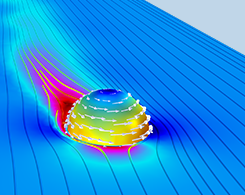
Does It Matter Which Ball the FIFA World Cup™ Teams Practiced With?
In an attempt to determine what type of soccer ball is best to prepare for the FIFA World Cup™, we set up a backyard experiment involving a leaf blower, level, and a few soccer balls.
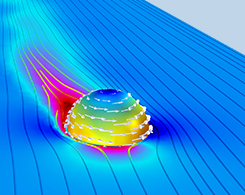
Terminal Velocity, Drag Coefficients, and FIFA World Cup™ Predictions
Is it possible to predict the winners of the FIFA World Cup™? We forgo consulting a psychic and instead analyze the terminal velocity and drag coefficients of different balls with CFD simulation.

Why Is Ice Slippery Enough for Skiing and Skating?
The original theory for why ice is slippery involves the concept of pressure melting. However, the true answer involves more research, debate, and thought.
